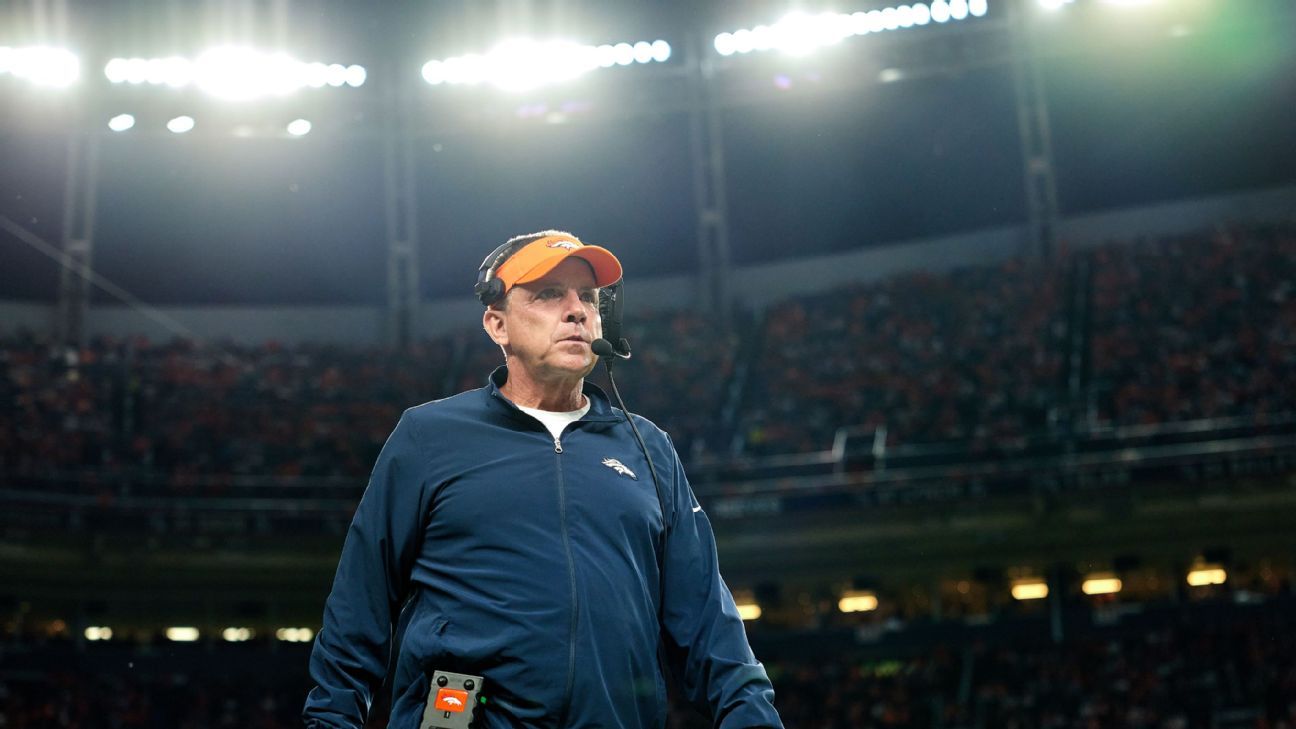At about 3 a.m., after hours of drinks and music and hugs, head coach Sean Payton picked the Lombardi Trophy up off a couch and gave a short speech. This was back in February 2010, at the Miami Intercontinental Hotel, the night the Saints won Super Bowl XLIV. In a private room, Payton, Kenny Chesney, some players, and a few randoms, myself included, were hanging out. Lighting was low, and the walls marble. Half-full cups were scattered. Hair messy from people rubbing his head during hugs, Payton wore a striped shirt. He held the trophy, and with rock band Better Than Ezra thumping through the walls from the nearby ballroom, he addressed the room.
“People are going to say we made history,” he said. “But nobody will remember except us.”
He went on for a few minutes, but that was the heart of it. Moments later, he stepped back and stood next to Chesney, gripping the trophy by the neck, not wanting the night to end.
“I REMEMBER,” Payton says over breakfast on a July morning 13 years later.
We’re sitting in the clubhouse of Gozzer Ranch, a golf club near the lakeside mountains of Coeur d’Alene, Idaho, with a clientele that includes Kim Kardashian, Justin Bieber and Chris Pratt. Payton has vacationed here for years. Each day at 8 a.m. he joins Wayne Gretzky, John Elway, Tampa Bay Lightning coach Jon Cooper, former MLB vet Pat Burrell, former NHL tough guy Kelly Chase and a few businessmen — “Breakfast Club,” they call themselves — at a corner table, with a view of the valley. They eat eggs and toast, down coffee and divide into teams for the day, wagering thousands each round in prop bets, and prop bets on prop bets, minutiae only they understand, a band of competitive adrenaline junkies.
“You coming?” Gretzky says, walking by.
“I’m playing,” Payton says.
He doesn’t wear a watch during the month he spends in Idaho. “I like having no plans,” he says, bouncing between relaxed and edgy this morning, about to begin his first season with Denver after a year out of the game. “Livin’ on a Prayer” comes through the clubhouse speakers. Payton was at a Bon Jovi concert when he got the call from the Saints to be head coach in 2006. He enjoys reminiscing about the joy of his rise, a career that started in 1988 when he drove from Chicago to become an offensive assistant at San Diego State. “Broke down in Denver, ironically,” he says. That beginning was long before he became a champion in New Orleans at age 46. And longer still before what came after that — a suspension from the league for Bountygate in 2012 and what he has come to see as a pattern of targets and slights dogging him and his teams for over a decade since. He’s 59 now, graying at the temples, squinting without reading glasses, and unmistakably eager for his second shot at a Lombardi.
When I ask, Payton says he remembers wanting that first speech to be just for his players and coaches — a brief “Shawshank moment.” But there was a Gatorade bath. Cameras. Hugs. Security leading him to a stage for the trophy presentation. League suits telling Saints players who was allowed on the stage. Payton making clear in profane terms that he wouldn’t go onstage if certain players weren’t allowed. One microphone after another. Before he knew it, the locker room was empty and aides were ushering him to the postgame party. Behind a police escort, the bus motorcade zipped down the freeway. Payton stared out the window into the Miami night, tires humming on the asphalt, and it hit him that this collection of players and coaches and staff would never again be alone in the same room. He asked the driver to ease up, slowing time because he couldn’t stop it.
The party was in full swing when the team arrived at the Intercontinental. By the time Sean Payton told those of us gathered around that nobody would remember, the forgetting had already begun.
